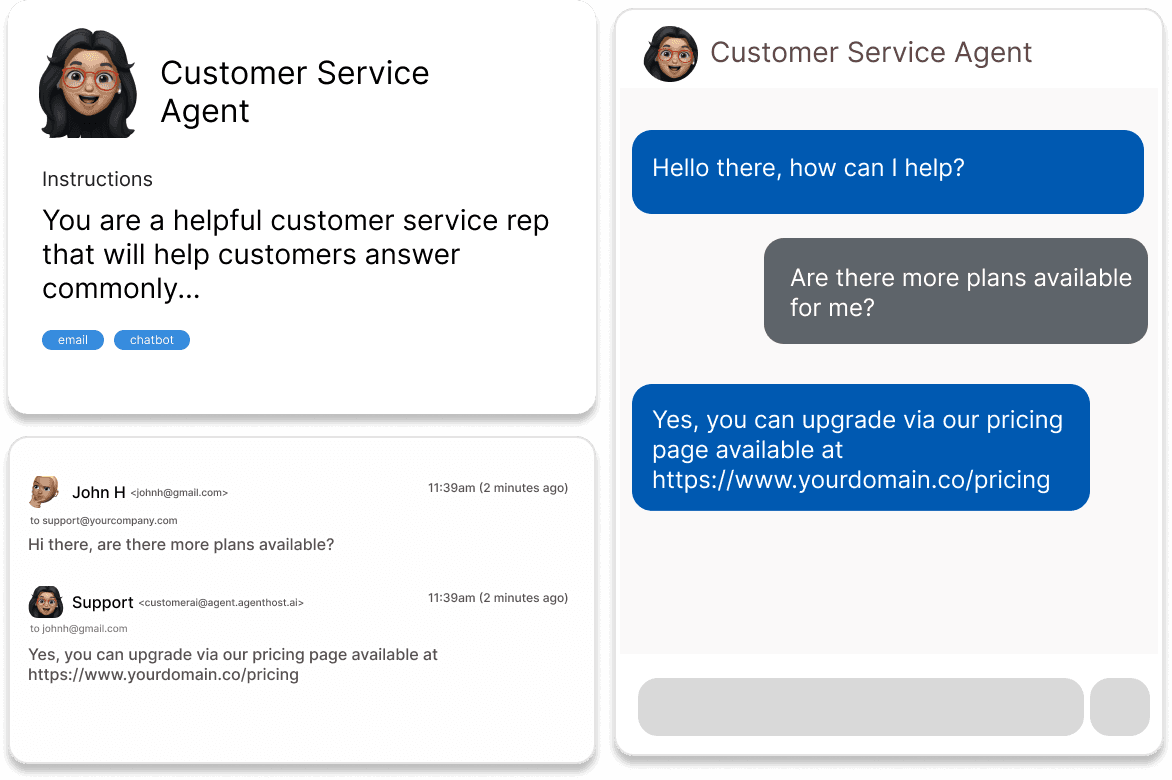
How these GPTs made their first $100 in revenue
Since their launch last November, there’s been a huge amount of interest in GPTs, with some claiming they would soon replace apps. Three months later, the GPTStore has launched to much fanfare but with monetization plans for the store months away, we wanted to share some insights about how certain creators are already making money from their GPTs today.
Since Agenhost launched 2 months ago, thousands of creators have created AI agents that have gone on to receive hundreds of thousands of messages. We spent some time digging through internal data and chatting with GPT creators who have successfully generated revenue and these are some of the takeaways.

Try Agenthost for hosting your GPT
Agenthost lets you easily create useful AI agents from OpenAI GPTs and connect them to over 6k+ other apps. Join thousands of creators building AI agents on Agenthost.

Trusted by teams at



Offer a free trial with enough messages to let people test your agent.
When it comes to other SaaS businesses, some people advocate for not offering free trials but our data suggests that it’s something of a must-have for GPTs. All of the GPTs that have generated revenue had a free trial with an average of 8 messages in the trial in our sample. We think that this is likely driven by a lack of familiarity and some skepticism that people naturally have when interacting with a chatbot. First impressions here are critical so showing the unique insight or intelligence your GPT has is extremely important. This means crafting a welcome message that leads the user to ask questions that your GPT responds great to is crucial.

Get insight into your agents most sent queries to find your customer's biggest problem
Making a successful product always boils down to solving a problem for your user. Unlike web apps or mobile apps, GPTs are much more versatile and unstructured which comes with challenges in terms of understanding how your users are using them. Being able to see trends in the most popular questions sent to their GPT has been pivotal for many of the creators as it allowed them to target and monetize solving those pain points. Once you understand what types of questions are being asked to your GPT, you can create a paid plan that answers the question in the best way and incentives upgrading.

Monetizing capabilities > monetizing access
In our data, we found that the GPTs that gated on capabilities tended to do much better than those that just gated based on a messaging limit. When agenthost first launched, our platform allowed creators to monetize by limiting the number of messages a user could send to an agent based on their plan. Over time, we saw that some GPT creators were making private v2 versions that provided more capabilities and users could only access them after purchasing a plan. This inspired us to add the ability to specify custom instructions for agent payment plans so allow agents to offer more capabilities for paid plans versus
One-off payments > recurring (for the moment)
Due to the skepticism mentioned above, many users just aren’t attracted to monthly payment plans for GPTs given that the majority of them exist in a chat interface. Finding durable usage of a GPT means facilitating re-engagement which is likely the hardest part. This is why agenthost added support for collecting your user’s email to re-engage and why we’ll be launching native apps for GPTs soon that will create an app shortcut on a user’s phone to a custom GPT. Anyone who’s ever built a consumer product will tell you that staying on your user's mind in our hyperactive world is truly the hardest part of building a product. We expect that over time, more tools will arrive that make this easier for the average GPT creator. Thanks so much for reading, we hope you’ve gleaned some new information from this article. We’re building agenthost to be the best place to launch, monetize, and grow GPTs and we’re excited to share tips and tricks back to the builders in the community! See you next time.
